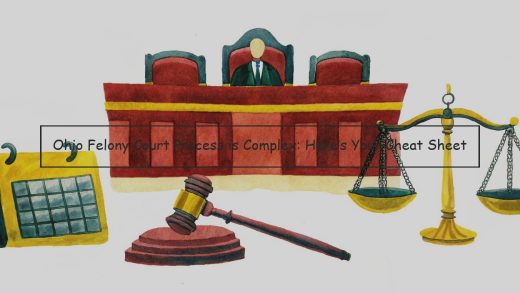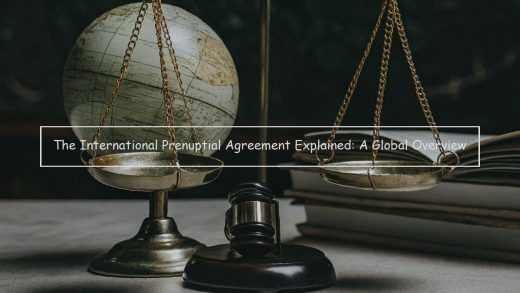
Illinois Non-Solicitation Agreement defined
A non-solicitation agreement is a legal contract between an employer and an employee or other service provider. Under the terms of the agreement, the employee agrees not to "solicit" the business or customers of the company. For example, if a company sells widgets, the employee may agree that he/she will not reach out to the pre-existing customers of the company after leaving the employment of that company.
The objective of a non-solicitation agreement is to protect the near-immediate contact to current customers that your business has when you employ an employee in the same industry. Over time, an employee will learn all about your current (and prospective) customers. They will know, for instance, how frequently they order a certain product, what their pricing structure is, what service they are providing to that customer, where the price range is in case the customer wants to negotiate for a better deal , etc. It makes great intuitive sense that what your business gains in hiring the employee – namely, their skills and talents – are protected from unfair competition by preventing a quick switch of employers.
Non-solicitation agreements are similar to non-compete agreements, but differ slightly in scope. A non-compete agreement would bar the employee from working in the widget business for another company after leaving your company. They are also different than confidentiality agreements (which would prevent the employee from disclosing sensitive information). These last two agreements are not the subject of this post, but when any of these agreements are appropriately drafted, a good lawyer should always point out whether the use of the non-solicitation agreement may have made it possible to do a non-compete or confidentiality agreement instead.
Legal Background in Illinois
The enforceability of non-solicitation agreements in Illinois is governed by a complex web of statutory law and common law principles. Under Illinois’ Freedom to Work Act, (820 ILCS 90/) agreements that are entered into on or after January 1, 2017. A "covenant not to compete" is defined as "(1) any covenant or contract that for a specified period of time restricts the employee from performing work for another individual or entity (2) is contingent upon the employee’s employment relationship with the employer" (820 ILCS 90/5). The same statute also prohibits employers from requiring employees to sign or present covenants not to compete for consideration while the employee is involuntarily terminated from his or her employment or terminated without cause (820 ILCS 90/25). For all covenants not to compete other than the two specified in the statute, Illinois courts have discretion to exercise their non-compete exemptions.
In addition to the Freedom to Work Act, Illinois law requires covenants not to compete to protect a legitimate business interest of the employer. See Reliable Fire Equipment Co. v. Arredondo, 2011 IL 67, at 18-19 ("Covenants that are ancillary to the sale of a business and of employment are disfavored if they are broader than required to protect a legitimate business interest.(Emphasis added)). As a result, courts are likely to enforce covenants narrowly tailored to the employer’s legitimate business interest (Reliable Fire at 18-19). Consistent with the Freedom to Work Act, Illinois courts will invalidate agreements that are entered into in violation of contractual or statutory provisions that the courts must apply according to their terms, however. See Reliable Fire at 19.
Threshold requirements for enforceability
Ilinois law has consistently held that not all restrictive covenants will be enforced. In fact, non-solicitation restrictions in employment contracts are given "strict scrutiny" and are only enforced if they are reasonable in terms of their duration and geographic scope and protect a legitimate business interest. The most exclusive restrictions will not necessarily be enforced, especially against low-level employees who have little contact with customers. Restrictions requiring a 6 or 12 month period of restraint have been typically upheld.
Recent developments in Illinois
When a company uses a non-compete or non-solicit, Illinois law will only enforce the agreement if it is necessary to protect a "legitimate business interest" of the company. At least one Illinois appellate court has suggested that the four types of interests generally recognized as valid are: (1) trade secrets, (2) other confidential information, (3) near-permanent contacts with customers, and (4) near-permanent employee contacts.
Interestingly, those four legitimate business interests are not specifically defined in the Illinois Freedom to Work Act, yet the Illinois legislature kept those standards in mind when passing the Act was approving the Act. As discussed below, recent Illinois case law has further defined what "legitimate business interests" a company has in enforcing a non-solicit and a non-compete agreement.
In Szymanski v. American Guardian Warranty Services, Inc., No. 07-3181, 2008 WL 4104460, at *1 (N.D. Ill. Sept. 2, 2008), the plaintiff alleged a breach of the Agreement’s non-solicitation provision. The court found that the company had a legitimate business interest in enforcing the non-solicit is the "maintenance of a highly trained workforce." Id. From this case, it is clear that the fact a defendant has relationships with a company’s customers is not sufficient on its own to justify enforcement of a restrictive covenant. Rather, the employee’s contact with the customers must be "near permanent" to justify enforcement. See also Aon Consulting, Inc. v. Control Risks Group, No. 07-4037, 2007 WL 1976774, at *3 (N.D. Ill. July 6, 2007); HPI Health Care Services, Inc. v. Mount Sinai Hospital and Medical Center, 137 Ill. 2d 373, 387 (1990).
However, an employer may have a legitimate business interest in restricting solicitations of employees or target customers that are not "near permanent." Indeed, in Edward Don & Co. v. Filmco, No. 08-cv-1617, 2008 WL 5239878 (N.D. Ill. Dec. 12, 2008), citing the Szymanski decision, the district court – adopting the findings of the magistrate judge in the same dispute – found that a non-solicitation which merely restricted solicitation of employees could be enforced without further evidence that the company had a legitimate business interest in enforcing the non-solicit against a competitor who had recently hired the company’s employees on the theory that "by hiring away a significant number of [defendant’s] top employees, [the competitor] gained an unfair competitive advantage over [plaintiff]." Id.
In Executive Construction, Inc. v. Cenci, 370 Ill. App. 3d 777, 781, 861 N.E. 2d 192, 197 (1st Dist. 2006), the court found that in order to qualify as a legitimate business interest, the former employer must demonstrate that the non-compete agreement is necessary to "preserve confidential information or trade secrets or to remedy the former employee’s unlawful taking of property or to protect near permanent customer relationships." Similarly, in Aon Consulting, Inc. v. Control Risks Group, 2007 WL 1976774 (N.D. Ill. Jul. 6, 2007), the court held that a former employer had a legitimate business interest in enforcing a non-solicitation of employees agreement where it had "some evidence that, if not for the non-solicit, [the former employer’s] customers may have benefitted from [the competitor’s] and plaintiff’s theft of [the plaintiff’s] employees." Id. at *4.
How to Draft Effective Non-Solicitation Agreements
In Illinois, non-solicitation agreements should be specific to the targeted activity, i.e., what the employee is prohibited from doing and, where applicable, what the employee is permitted to do. Language that complies with Illinois law and maximizes enforceability is critical. While Illinois courts have generally focused on reasonableness relating to duration and geographic scope, for non-solicitation agreements, where possible, the employer should draft an agreement that is tailored to the prohibited activity rather than simply a blanket prohibition on the most common employee post-employment activities that the employer wants to avoid. An agreement that states that the employee is prohibited from soliciting clients or employees may be overly broad. Instead, a clause that prevents the employee from going after former or current clients with whom the employee had direct contact is tailored to the activity the employer should want to protect. Leaving out customer lists and other information that the employee has worked with or had direct access to in the clause with the prohibited activity may also render the clause unenforceable. Similarly, stating the employee shall not directly or indirectly contact or solicit customers and prospective customers informs the employee of the parameters of prohibited conduct with respect to clients. Further, Illinois employers should make sure that the non-solicitation provision is limited in scope and does not cover customers or employees that are outside the employee’s normal course of business. A narrow geographic scope of the non-solicitation may assist in the enforceability, but it is not required and courts recognize that some businesses, both local and national, simply have no geographic restriction . The duration of the restriction should also be specific to the restriction. It is commonplace for employers to include a section in the agreement that a prohibited solicitation will be deemed a violation of the agreement even if the customer is one with which the employee had no direct involvement. These types of restrictions should be avoided, however, as they are more likely to be found unenforceable. While Illinois courts often consider a post-employment restriction that is less restrictive than a prior restriction, by taking an unreasonably broad approach by including all customers they believe may be located in the geographic scope of the company, an Illinois court may apply an unreasonably stringent approach to deciding what is reasonable. Perhaps the strictest enforcement of non-solicitation agreements in Illinois is with respect to those between an employer and independent contractor. Under Garcia, an independent contractor may not be bound by a non-solicit agreement, regardless of whether the independent contractor and the employer signed an agreement. Specifically, the Garcia court held that, regardless of an agreement between the parties, "the relationship between the parties must satisfy the requirements for an employer-employee relationship as set forth in the [Illinois] Labor Code." To help ensure that Illinois non-solicits are enforceable, they should clearly describe the limitations on the employee. Additionally, employers may want to consider including a description of prohibited acts, if frequent tweaks to the agreement are not possible. Tailoring the prohibition as closely as possible to the prohibited conduct is an additional consideration an employer may wish to make.
Potential penalties and remedies
When a party violates a non-solicitation agreement, the potential consequences in Illinois can range from monetary damages to injunctive relief. If an employee who is bound by a non-solicitation agreement leaves the company and then solicits the company’s clients for their business, their employer may seek remedies for the damages caused by the violation and attempt to prevent further solicitation.
One of the potential remedies for a violation of a non-solicitation agreement is injunctive relief. This is when a court orders the party violating the non-solicitation agreement to stop doing the conduct prohibited by the agreement, such as soliciting the company’s clients. In some cases, injunctive relief may be granted before a trial if the court finds that it is appropriate in order to prevent irreparable harm. In Illinois, parties seeking injunctive relief can request either temporary or permanent injunctive relief, with temporary relief being available before a trial and permanent relief after a trial.
A second form of potential remedies for a violation of a non-solicitation agreement in Illinois is an award for damages. One type of damage that can be awarded is for lost profits due to the violation. Lost profits can be recovered if they are "certain as to occurrence and capable of being proved with reasonable certainty." Another way to quantify alleged damages is to use the numbers of clients solicited and the value of their business to show what the business would have earned in the absence of the violation. A third type of award is unjust enrichment. If an employee left the company and later solicited business from a customer, the former employer can ask the court to require the employee to Austin and/or disgorge what was received for the solicitation if the company can show that the former employee was aware of the non-solicitation agreement.
If the non-solicitation agreement contains a provision for forfeit of compensation, the company can also seek recovery for the compensation forfeited. Another potential damage award is for attorneys’ fees. Illinois courts will award attorneys’ fees if the agreement states that one party is entitled to recover fees if it prevails. Of course, attorneys’ fees may also be awarded in the discretion of the court under the "American Rule" if circumstances dictate. Potential damage awards in a lawsuit are frequently accompanied by an award for attorneys’ fees and injunctive relief.
If the non-solicitation agreement is held to be void, then generally the employer will be entitled to recover damages for lost profits. But if the agreement is held to be a reasonable restraint, then the employer will also be entitled to injunctive relief in addition to damages.
Injunctions can be broad or narrow in scope. Injunctions against soliciting employees for a period of time after employment has ended are common. In a case in 2011, the Illinois Appellate Court granted an employer’s request for an injunction against a former president from soliciting employees for six months, which the court found appropriate even though the non-solicitation period designated by the company was 12 months. The Court did not find that this was an unreasonable behavior by the plaintiff to obtain a preliminary injunction against the defendant.
Illinois courts have also granted permanent injunctive relief to prevent current employees from working for a competitor.
What employees can do
Employees in Illinois can attempt to get out of a non-solicitation agreement or come to some sort of compromise by arguing that it is too broad. For instance, if you are an auto mechanic and your non-solicitation agreement says you can’t work on BMWs, Corvettes, and Teslas, but you only want to work on Teslas, then you may have some good leverage to say that the agreement is unnecessarily broad. If it says you can’t work on luxury cars and you don’t consider a Cadillac a luxury car, then that may be something the employer has to narrow down.
On the other hand, sometimes an employee can make an argument that even though it’s specific, it’s so close to your job that it’s beyond the usual scope of a non-solicitation agreement and unlikely to be enforceable.
These rules are not written in stone. Non-solicitation agreements are pretty much a young field of employer control in Illinois, and so there really is no cookie cutter approach to challenging them.
If you are faced with enforcement of a non-solicitation agreement then you quickly need to find an attorney who knows what they are doing and most importantly knows how Illinois Courts decide when to enforce one of these agreements.
In many cases, especially when the agreement is not valid, your lawyer may be able to get you a settlement where you get paid off and can move on . This always beats going to Court and having to litigate the issue when in fact you are in the right.
There are other scenarios where you have the leverage in your case, but you can’t get a settlement that works for you. In that scenario your best course of action is to file a lawsuit and quickly seek an injunction so that you can show the Judge that the non-compete is overly broad and should not be enforced.
You may find you get a settlement offer that is less than you hoped, which gives you the option of taking it or throwing the dice and seeing if you can get the non-compete invalidated.
One big issue on a lawsuit along these lines is whether you can sue in Illinois for breach of contract and get it done rather quickly. The best place to do this is in Federal Court, but only if your employer is big enough for that to be an option. I say this because there are Illinois counties that by nature take ten months just to set a trial date while ruling on discovery takes even longer.
The legal process on this is too complex to get into in a blog post, but you are looking at filing a lawsuit asking the Court to declare the non-solicitation agreement or non-competition agreement null and void and for damages.
In Illinois, a violation of a non-solicit can result in actual damages and attorneys fees, but it also frequently results in an injunction to stop the behavior that was prohibited.



